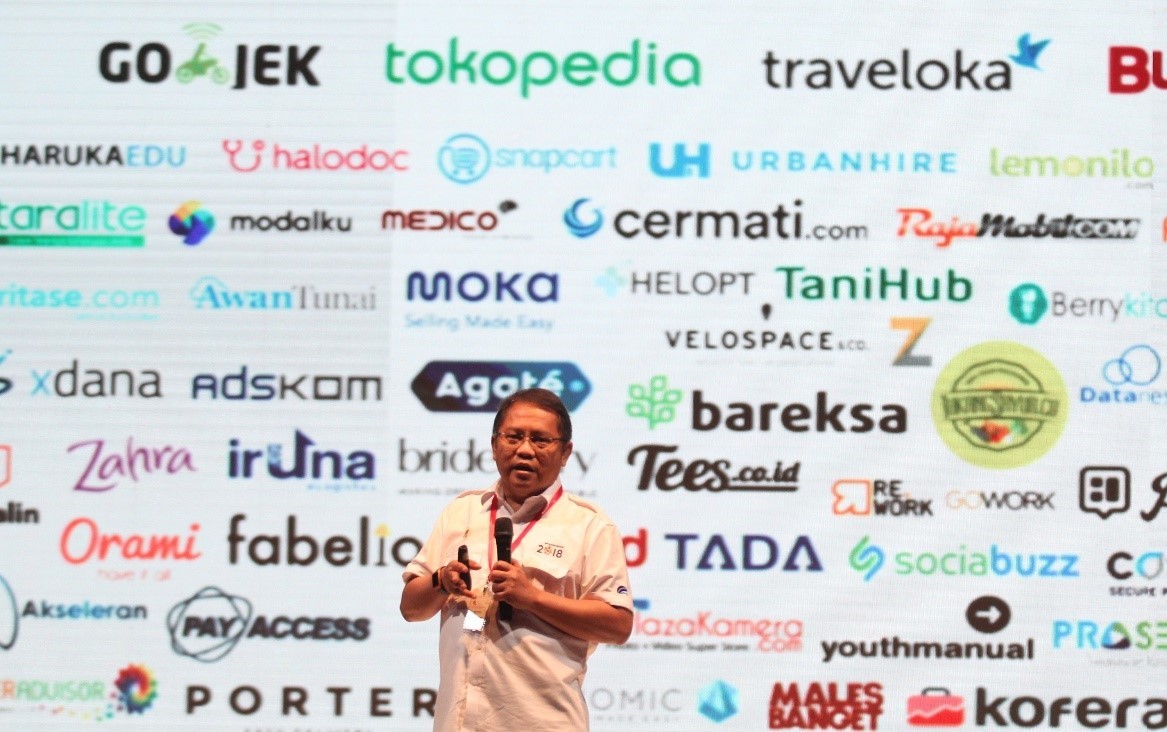Number of start-ups projected to grow 20-30 percent this year, Bekraf says
“Many problems require digital solutions that can be offered by start-ups."
Change Size
 Communications and Information Minister Rudiantara opens the inaugural Nexticorn International Summit Indonesia on May 9, 2018 in Nusa Dua, Bali. (JP/Zul Trio Anggono)
Communications and Information Minister Rudiantara opens the inaugural Nexticorn International Summit Indonesia on May 9, 2018 in Nusa Dua, Bali. (JP/Zul Trio Anggono)
T
he Creative Economy Agency (Bekraf) has projected 20-30 percent growth in the number of start-ups in Indonesia as they are supported by high demand for digital solutions in business, industry, bureaucracy and in other sectors.
“Many problems require digital solutions that can be offered by start-ups. The penetration of the internet in Indonesia is also high,” said Bekraf non-banking access director Syaifullah Agam on Monday as quoted by kontan.co.id.
He said the high growth of start-ups was also supported by the large middle-income population in Indonesia, which was projected to reach 140 million in 2020.
Indonesian start-ups that have been categorized as unicorns are Tokopedia, Bukalapak, Go-Jek and Traveloka. Ride-hailing app Go-Jek has gained decacorn status.
Syaifullah said the middle-income bracket should be considered in monitoring the progress of start-up development because the income bracket comprised potential buyers. He also said the demographic bonus was another important factor.
“The large number of productive age people opens the opportunity for creating more start-ups,” he added.
However, he said many start-ups had failed to develop because of various factors, including lack of managerial expertise, financing issues and other technical factors.
He said lack of financing support was often blamed for the failure of start-ups, although there was a potential to use venture capital.
“But the government has not given enough facilities to help venture capital grow,” Syaiful said, adding that he believed venture capital was a good solution for start-up financing.
He added that start-up financing currently relied on capital from individuals or internal funds.
“If financing is facilitated by the government, start-ups will develop more progressively,” Syaiful added. (bbn)









